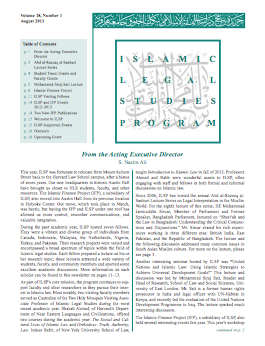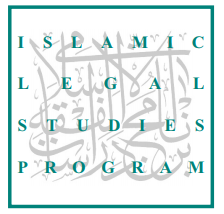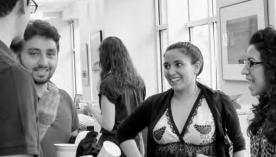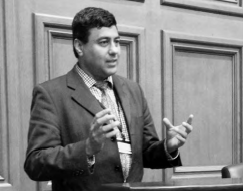
 From the Acting Executive Director This year, ILSP was fortunate to relocate from Mount Auburn Street back to the Harvard Law School campus, after a hiatus of seven years. Our new headquarters in historic Austin Hall have brought us closer to HLS students, faculty, and other resources. The Islamic Finance Project (IFP), a subsidiary of ILSP, also moved into Austin Hall from its previous location in Holyoke Center. Our move, which took place in March, was hectic, but having the IFP and ILSP under one roof has allowed us more control, smoother communications, and valuable integration. Read more
From the Acting Executive Director This year, ILSP was fortunate to relocate from Mount Auburn Street back to the Harvard Law School campus, after a hiatus of seven years. Our new headquarters in historic Austin Hall have brought us closer to HLS students, faculty, and other resources. The Islamic Finance Project (IFP), a subsidiary of ILSP, also moved into Austin Hall from its previous location in Holyoke Center. Our move, which took place in March, was hectic, but having the IFP and ILSP under one roof has allowed us more control, smoother communications, and valuable integration. Read more
 Shari‘a and the Law in Bangladesh: Understanding the Critical Conjunctions and Disjunctions Bangladesh, a Muslim-dense democratic state in South Asia, represents a curious dichotomy between the belief system of the Muslim majority (shari‘a) and the existing legal system of the country. However, underneath this apparent dichotomy, there exist certain crucial interlinkages between shari‘a and the law. This dichotomy and the linkages merit a careful scrutiny, though they have never been subjected to any systematic academic analysis. This paper therefore seeks to examine the conjunctions and disjunctions between shari‘a and the law in Bangladesh and point out the key challenges of integration of shari‘a and its mainstreaming in the legal system of Bangladesh. Read more
Shari‘a and the Law in Bangladesh: Understanding the Critical Conjunctions and Disjunctions Bangladesh, a Muslim-dense democratic state in South Asia, represents a curious dichotomy between the belief system of the Muslim majority (shari‘a) and the existing legal system of the country. However, underneath this apparent dichotomy, there exist certain crucial interlinkages between shari‘a and the law. This dichotomy and the linkages merit a careful scrutiny, though they have never been subjected to any systematic academic analysis. This paper therefore seeks to examine the conjunctions and disjunctions between shari‘a and the law in Bangladesh and point out the key challenges of integration of shari‘a and its mainstreaming in the legal system of Bangladesh. Read more
 United Nations and Islamic Law: Strategies to Achieve Universal Development Goals and Human Rights in the Muslim World? A common dilemma confronting post-conflict interventions in Muslim societies is whether, or to what extent, to engage with Islamic normative systems and perforce Islamic political dynamics. Will entertaining Islamic arguments add another layer of volatility, frustrate reform, and embolden radicals? Will canvassing medieval Islamic doctrines, like other customary norms, unravel the hard-won development consensus and jeopardize human rights? Widespread anxieties such as these may reflect the false premises and dichotomies—universal versus Islamic, secular versus faith-oriented, modern versus traditional—that sometimes permeate development discourses. UN agencies seeking to harness authentic Islamic ideas do not advocate for exclusive or automatic Islamic solutions where Muslims live. Instead the quest is for Islamic components that can be fitted into overall universal strategies. Read more
United Nations and Islamic Law: Strategies to Achieve Universal Development Goals and Human Rights in the Muslim World? A common dilemma confronting post-conflict interventions in Muslim societies is whether, or to what extent, to engage with Islamic normative systems and perforce Islamic political dynamics. Will entertaining Islamic arguments add another layer of volatility, frustrate reform, and embolden radicals? Will canvassing medieval Islamic doctrines, like other customary norms, unravel the hard-won development consensus and jeopardize human rights? Widespread anxieties such as these may reflect the false premises and dichotomies—universal versus Islamic, secular versus faith-oriented, modern versus traditional—that sometimes permeate development discourses. UN agencies seeking to harness authentic Islamic ideas do not advocate for exclusive or automatic Islamic solutions where Muslims live. Instead the quest is for Islamic components that can be fitted into overall universal strategies. Read more
See the full newsletter.

